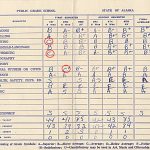 I don’t know how many times I’ve used the phrase, “Just do your best.” Typically, I’ve said it as a way to calm a child who is nervous before a big test or performance. I’ve said the same thing to encourage staff members. Recently, however, I’ve wondered if I should stop saying this.
Consider the potential pitfalls with each of the words in this simple phrase:
I don’t know how many times I’ve used the phrase, “Just do your best.” Typically, I’ve said it as a way to calm a child who is nervous before a big test or performance. I’ve said the same thing to encourage staff members. Recently, however, I’ve wondered if I should stop saying this.
Consider the potential pitfalls with each of the words in this simple phrase:
- “Best” is a tricky word. Does it mean absolute best? Consider a student who is preparing for a test that requires a massive amount of memorization. She is capable of doing the memory work, but that would mean ignoring other assignments. What is “best” in this case? Making a high grade on the one test or overall academic results? Or for that matter, overall academic results versus a well-rounded life?
- “Your” is intended to remove the pressure of comparison for the individual. And yet, they often hear “the” instead of “your.” And if they hear “Do the best,” it completely changes the meaning. In fact, as leaders and parents, we often weaken the “your” in the phrase. How? When results are received, we ask how others did. In other words, was “your” best as good as that of others?
- “Do” plays into the American work ethic. We allow ourselves to be defined by activity – by what we “do.” It is rarely enough to “be.” Of course, this tension plays out in many conversations about Christian faith when people stress a legalism over grace, “doing” good works versus “being” a child of God.




For both my teenage kids and my staff, one of the quotes I use often on this topic is: “Sometimes doing your best is not good enough. Sometimes you must do what is required.” ― Winston Churchill
An example would be; Me: I asked you to your homework before you could call a friend. Child: But I cleaned my room and I did my best! Me: Cleaning your room was not required, please do your homework. (insert emotional meltdown here)
It creates great teaching opportunities with children and adults.
Thanks for the insight Mike!